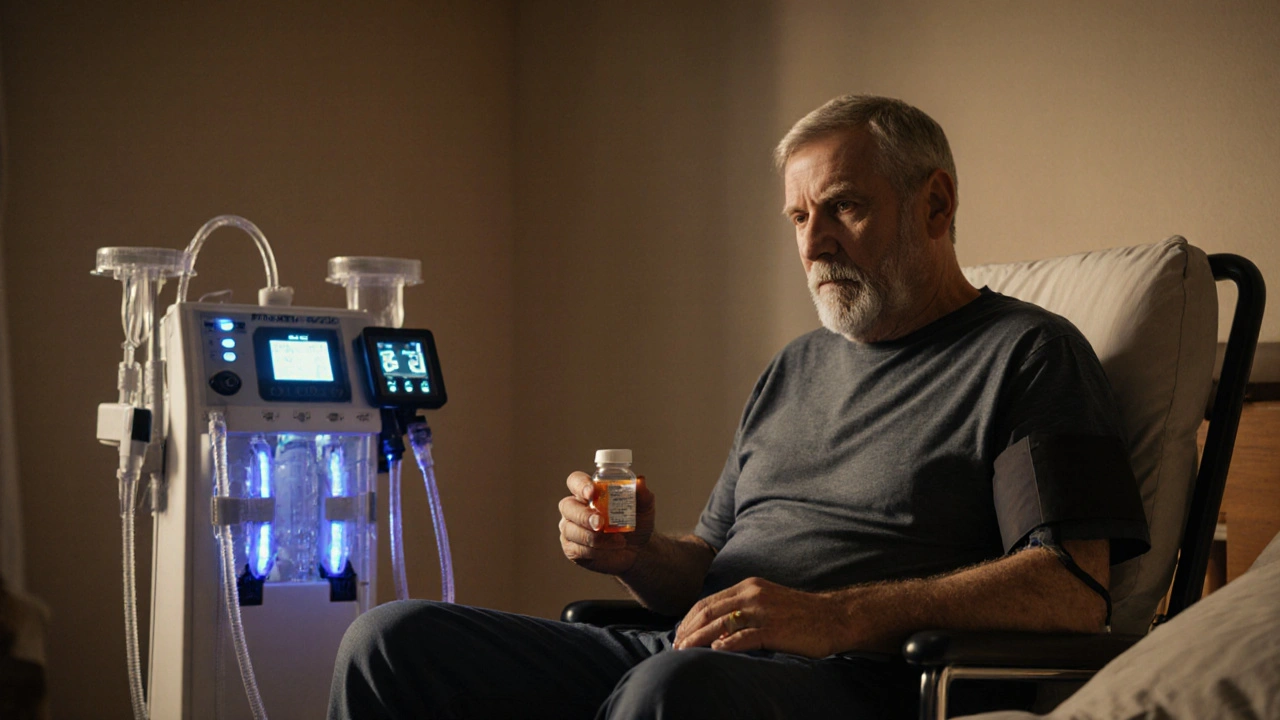A practical guide on how renal failure impacts mental health, with clear steps to handle anxiety and depression for patients and caregivers.
Renal Failure: Causes, Symptoms, and What You Can Do
When your renal failure, the condition where kidneys lose their ability to filter waste and excess fluid from the blood. Also known as kidney failure, it doesn’t mean your kidneys stop working all at once—usually, it’s a slow decline that sneaks up on you. Your kidneys handle more than just urine production. They balance electrolytes, control blood pressure, make red blood cells, and activate vitamin D. When they start failing, these jobs get messy. High blood pressure, diabetes, and long-term use of certain painkillers are the usual suspects behind chronic kidney disease, a gradual loss of kidney function over months or years. But acute renal failure, a sudden drop in kidney function, often triggered by dehydration, infection, or toxic medications can happen overnight.
Most people don’t feel symptoms until things are pretty far gone. Fatigue, swollen ankles, trouble sleeping, and foamy urine are red flags. Nausea and confusion? That’s your body telling you toxins are building up. If you’ve got diabetes or high blood pressure, you’re at higher risk—and you should be getting regular blood and urine tests. Even if you feel fine. dialysis, a treatment that mechanically filters your blood when kidneys can’t isn’t a cure, but it keeps people alive. Some end up needing a transplant. But the best strategy? Catch it early. Cut back on salt, control your blood sugar, avoid NSAIDs like ibuprofen unless your doctor says it’s okay, and drink water—not soda or energy drinks.
The posts below cover real-world issues tied to kidney health: how certain medications like statins or antifungals can affect kidney function, what natural remedies people try (and whether they help), and how to manage side effects when you’re already dealing with a chronic condition. You’ll find comparisons of drugs used in kidney patients, safety tips for older adults, and insights into how other conditions like liver disease or heart problems interact with kidney health. This isn’t theoretical—it’s what people are actually dealing with every day. What you read here could help you ask the right questions at your next doctor’s visit.

